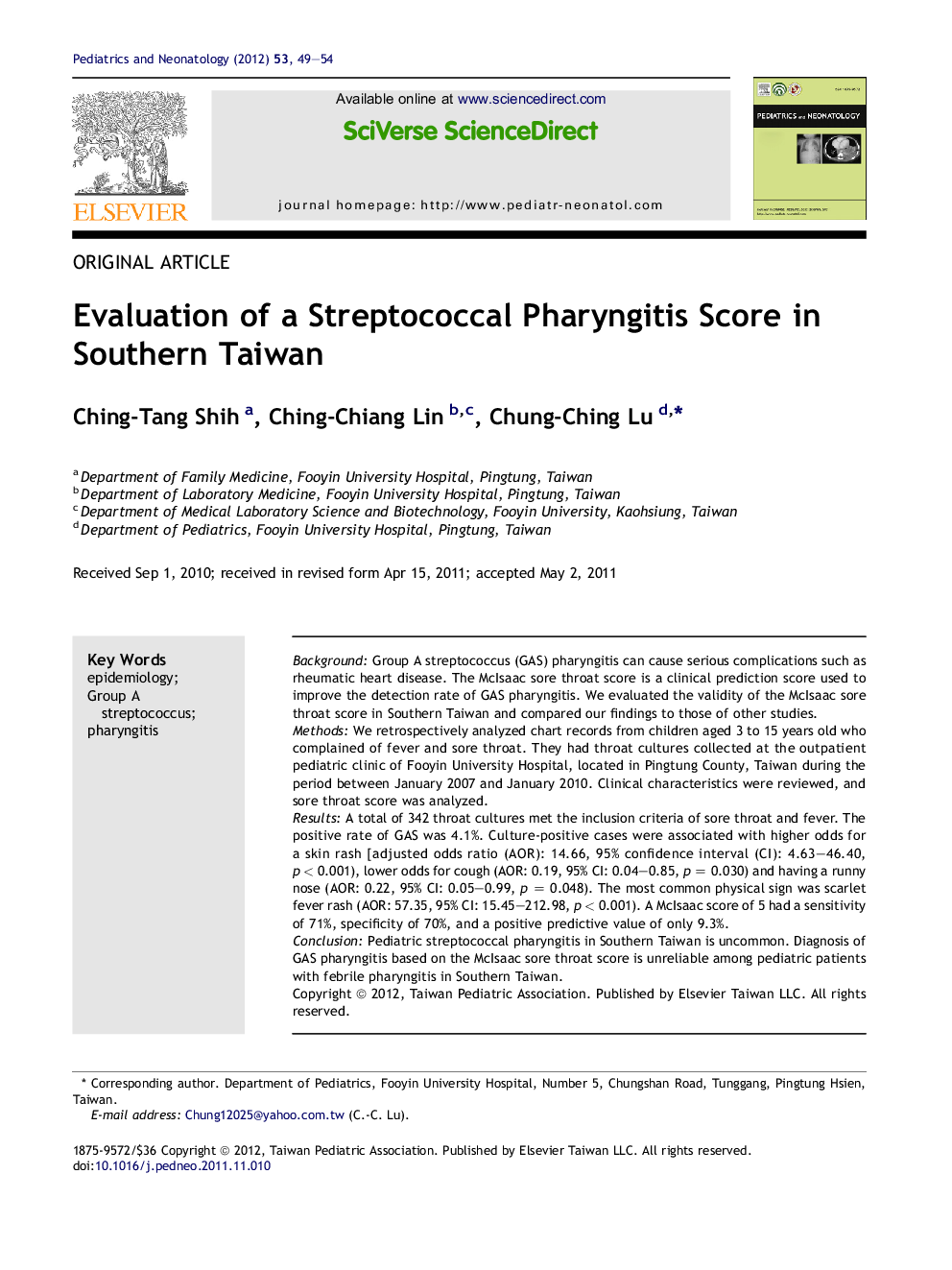| Article ID | Journal | Published Year | Pages | File Type |
|---|---|---|---|---|
| 4175274 | Pediatrics & Neonatology | 2012 | 6 Pages |
BackgroundGroup A streptococcus (GAS) pharyngitis can cause serious complications such as rheumatic heart disease. The McIsaac sore throat score is a clinical prediction score used to improve the detection rate of GAS pharyngitis. We evaluated the validity of the McIsaac sore throat score in Southern Taiwan and compared our findings to those of other studies.MethodsWe retrospectively analyzed chart records from children aged 3 to 15 years old who complained of fever and sore throat. They had throat cultures collected at the outpatient pediatric clinic of Fooyin University Hospital, located in Pingtung County, Taiwan during the period between January 2007 and January 2010. Clinical characteristics were reviewed, and sore throat score was analyzed.ResultsA total of 342 throat cultures met the inclusion criteria of sore throat and fever. The positive rate of GAS was 4.1%. Culture-positive cases were associated with higher odds for a skin rash [adjusted odds ratio (AOR): 14.66, 95% confidence interval (CI): 4.63–46.40, p < 0.001), lower odds for cough (AOR: 0.19, 95% CI: 0.04–0.85, p = 0.030) and having a runny nose (AOR: 0.22, 95% CI: 0.05–0.99, p = 0.048). The most common physical sign was scarlet fever rash (AOR: 57.35, 95% CI: 15.45–212.98, p < 0.001). A McIsaac score of 5 had a sensitivity of 71%, specificity of 70%, and a positive predictive value of only 9.3%.ConclusionPediatric streptococcal pharyngitis in Southern Taiwan is uncommon. Diagnosis of GAS pharyngitis based on the McIsaac sore throat score is unreliable among pediatric patients with febrile pharyngitis in Southern Taiwan.
